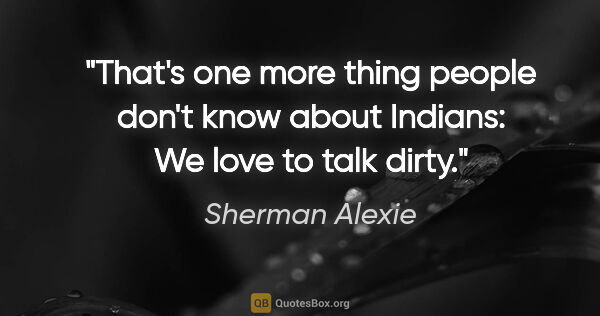Indian Quotes (page 11)
The sacrifices they had made persuaded the French people that they alone had won the war, and their government did nothing to correct this impression. The Canadians buried at Vimy Ridge, the British sailors lost at sea, Australians and New Zealanders who had fallen at Gallipoli, the Indian Corps which had frozen at Armentirres in the first winter of the war, Americans killed at Champagne and Argonne, all these were forgotten.
Len Deighton
It was our belief that the love of possessions is a weakness to be overcome. . . . Children must early learn the beauty of generosity. They are taught to give what they prize most, that they may taste the happiness of giving. . . . The Indians in their simplicity literally give away all that they have—to relatives, to guests of other tribes or clans, but above all to the poor and the aged, from whom they can hope for no return.
Charles Alexander Eastman
These paintings say Mexico is an ancient thing that will still go on forever telling its own story in slabs of color leaves and fruits and proud naked Indians in a history without shame. Their great city of Tenochtitlan is still here beneath our shoes and history was always just like today full of markets and wanting.
Barbara Kingsolver
...the values ascribed to the Indian will depend on what the white writer feels about Nature, and America has always had mixed feelings about that. At one end of the spectrum is Thoreau, wishing to immerse himself in swamps for the positive vibrations; at the other end is Benjamin Franklin, who didn't like Nature. [p.91]
Margaret Atwood
The Hopi, an Indian tribe, have a language as sophisticated as ours, but no tenses for past, present and future. The division does not exist. What does this say about time?
Matter, that thing the most solid and the well-known, which you are holding in your hands and which makes up your body, is now known to be mostly empty space. Empty space and points of light. What does this say about the reality of the world?
Jeanette Winterson
Some travellers tell us that an Indian had no name given him at first, but earned it, and his name was his fame; and among some tribes he acquired a new name with every new exploit. It is pitiful when a man bears a name for convenience merely, who has earned neither name nor fame
Henry David Thoreau


